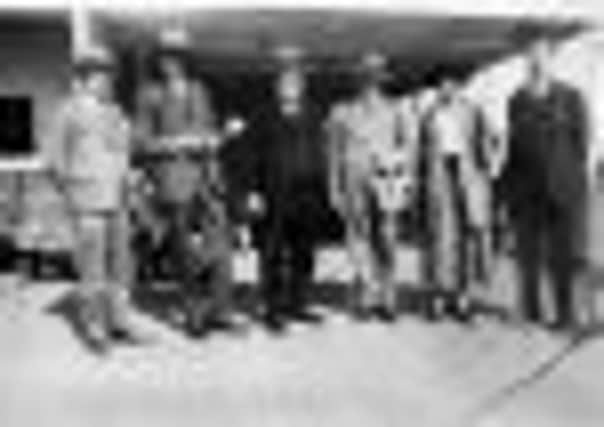Strange case of Agatha Christie and a passion for surfing


Agatha Christie is now best remembered as the elderly writer who created Poirot. But in the summer of 1922, the queen of crime spent a month in Hawaii learning to surf with her first husband Archie.
Just two years after her first novel was published, she and Archie set off on a 10-month round-the-world tour to promote the upcoming British Empire Exhibition, leaving their toddler daughter Rosalind at home with Agatha’s mother and sister. Now, letters she sent home and pictures from the trip have been published for the first time in 90 years, in The Grand Tour: Letters and Photographs from the British Empire Expedition, edited by her only grandson, Mathew Prichard.
Advertisement
Hide AdAdvertisement
Hide AdWhile official legs of the tour took them to South Africa, Australia, New Zealand and Canada, Archie and Agatha spent most of August on the island of Honolulu, becoming some of the first Britons to master the art of surfing on Waikiki Beach.
On August 29, she wrote: “Dear Mum, Just the same old life to talk about. The surf was good the beginning of the week... and I got several good runs ‘standing up’ like a Hawaiian.”
Accompanying the letter is a picture of a smiling Agatha standing proudly in front of her wooden plank of a surfboard which she named Fred after her father.
“She always loved bathing,” says Prichard. “I remember going with her on a family trip to the West Indies once in the 1950s and we had a long, tiring plane journey to get out there. I remember getting to the hotel in Barbados, which was the basis of a book called A Caribbean Mystery and her plunging in the sea the next morning and saying, ‘It’s wonderful’.”
Advertisement
Hide AdAdvertisement
Hide AdChristie, who was 85 when she died in 1976, was just 31 when she and Archie set sail from Southampton on the RMS Kildonan Castle on January 20, 1922. The letters reveal her to be passionate about travelling and meeting new people, but also devoted to her mother Clarissa Miller, who she wrote to almost daily, demanding to know how everyone was, particularly her daughter Rosalind. Four years after returning to the UK, her mother died and Archie revealed he was in love with another woman. Subsequently, Christie mysteriously disappeared for 11 days, eventually reappearing in Harrogate’s Old Swan Hotel.
“The Agatha that appears in the book is a younger, slightly more confident person, before she’d been through the travails of her mother’s death and her divorce,” says Prichard. “This was the halcyon days of her first marriage.” According to Prichard, it was an “agonising” decision to leave Rosalind at home, but Agatha “thought she might never have another opportunity to go on a 10-month trip virtually around the world”.
While he never asked his mother (who died seven years ago) whether she remembered the period of separation, Prichard says: “I’m sure she was splendidly looked after by her aunt. I think that parents had a slightly remoter relationship with their children in those days than they do now.” Besides, it would have been tricky to take a toddler around the world, when the quickest form of transport was boat.
“Towards the end of their trip, she and Archie ran short of money – Christie existed on hot water and meat extract in her Canadian hotel room while Archie was wined and dined by local dignitaries.
Advertisement
Hide AdAdvertisement
Hide Ad“This wasn’t a holiday, my grandfather was working hard on the financial aspects of the trip,” says Prichard.
“The idea was to persuade everybody, both here and in the Commonwealth, that there were areas of trade that hadn’t perhaps been fully explored.”
As for Christie she was beginning to realise the potential she had of becoming a full-time writer.In the early Twenties, she was in the middle of her first publishing contract, with The Bodley Head, which Prichard says wasn’t well paid. “Almost as soon as she got home, she delivered the five books and then got a contract with her present publishers Collins, which really did make it worthwhile. It was the beginning of a period of transition, from somebody who had written a couple of books, established a character, but at that stage was a normal married person who expected to spend the rest of her life supporting her husband, and for him to be the main wage earner.
“But of course, shortly after her return, she found that was not going to be the case. Five years after the tour she suddenly realised that if she didn’t have a husband any longer, she had to earn some money from writing books, and she was very successful.”